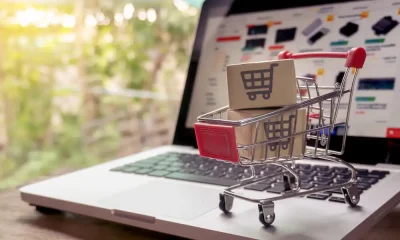Management
You Must Know These Things Before Going Into Business

Starting and running a successful business is a dream for many people, but you need more than just a good idea to commercialize it.
You’ll need to do a lot of research as not every good idea works as well as you’d expect. For example, creating mobile apps for companies is a good idea if you have the investment and resources, plus there’s a marketplace willing to pay the price you need to make a profit.
What you need to analyze before you commit any of your own funds to turn your idea into a business are:
- Funding – for initial setup costs, insurance, and working capital
- Resources – staff, equipment, workplace
- Marketing – customer discovery, building a community, lead generation
How Much Funding You Want And Where To Get It
Entrepreneurs will always use other funding resources instead of their own money. All startups need some investment, and usually, it comes from the owner.
However, there comes a time when more growth requires more funding. Before setting up a business, understand precisely the funding sources and when each lender is willing to front up with the cash. Most lenders want to know you as the owner have some ‘skin in the game,’ i.e., you’re using your money to take the business so far that targets have been reached.
To realize how far your hard-earned savings will take your idea you need to do costs analysis reporting.
Once your business is showing some favorable results, you can apply for funding from other sources, including
- Banks
- Crowdsourcing
- Peer-to-peer lending
- Seed funding
- Angel investors
- Venture capital
Not all lenders will be willing to lend your startup funds. Banks may require personal assets for security. Angel investors may require a role in the business to know what’s going on and how the money is being spent. You will need expert advice on which funding products are suitable for your startup as it grows into an SME.
Resource
Some startups require equipment that is hired rather than owned. Know the availability and costs before signing a hire agreement.
Equipment and Workspace
What equipment do you need to produce your offering? Where will be equipment be located? You’ll need a workplace for production and staff. Maybe customers visit too.
Compliance and Insurance
You’ll need to consider health and safety compliance, for staff and visitors, attaining industry standards like ISO or BS. Plus different types of insurance for the equipment, business, workplace, and security.
Who You’re Going Into Business With
A person rarely starts a business without a business partner, but that doesn’t mean you should team up with the first person that wants to go into business with you.
Make sure you know what skills, knowledge, investment, and network the person can bring to the startup. Avoid skills crossover – better to have a business partner that compliments your skills.
For example, you may be a software developer, and your role in the startup will be product design and development. Your ideal business partner may have sales, marketing, and customer service skills. Though choosing a partner with sound business accounting and finance experience wouldn’t go a miss. At all costs, also avoid going into business with family members.
Marketing
You’ll need a reasonable budget for marketing. If your business partner is not the one to lead the effort, hire a marketer – don’t attempt to do it yourself. You can waste a lot of money on the wrong initiatives without making much headway. Your business will need
- Active social networks
- Mobile-friendly website
- Active blog
Plus for more immediate sales generation a healthy monthly budget for advertising. Online advertising like PPC, SEM, SEO, SMM – a lot of acronyms that require specialists to use your funds wisely to deliver measurable results – i.e. sales.
Make sure you know these things before going into business, and you stand a much better chance of being successful. Although many businesses fail within the first few years, it shouldn’t stop you from starting and following your dreams. At the very least, you’ll learn some valuable lessons that you can apply again later on.
Thanks for reading!









